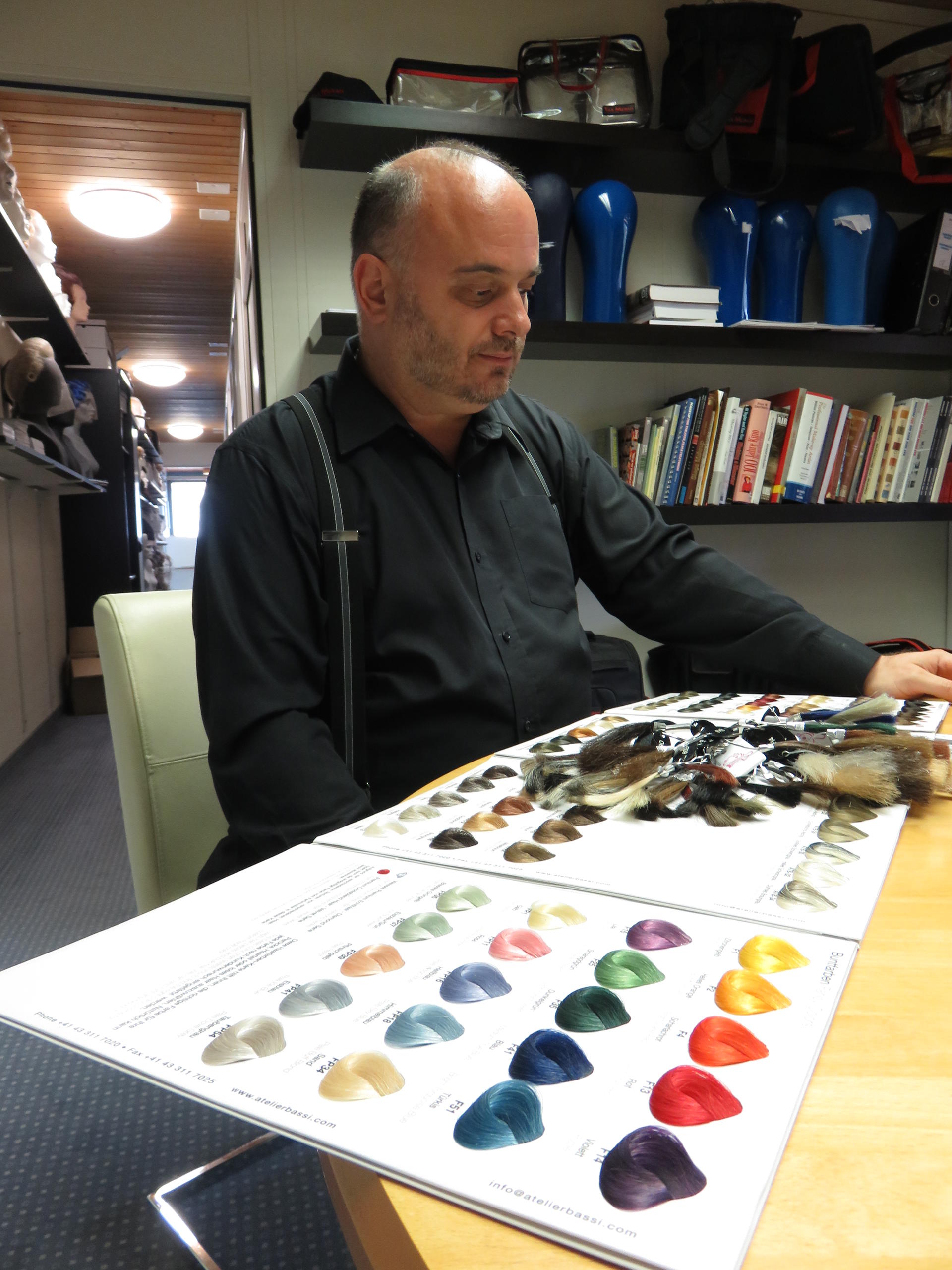India’s domestic hair demand could cut short Hollywood ‘big wigs’

The shorn locks of Indian women are prized worldwide for high-end wigs and hair extensions, but growing domestic demand could mean shortages for Hollywood and Broadway.
“Indian hair is not straight like a wire. It has some life in it,” says Swiss wig maker Orlando Bassi, whose company makes high-quality, customised wigs for the entertainment industry. His creations have featured in movies like Crouching Tiger Hidden Dragon 2 and Exodus, TV series such as Vikings, and Broadway musicals like Beauty and the Beast.

India is his biggest source of human hair but he says the country’s ideal combination of quantity, quality and price is now under threat. Earlier Indian women would wash their hair a couple of times a week and apply only coconut oil for extra shine. With globalisation and rising incomes they are increasingly resorting to shampoos and conditioners which have chemicals in them that affect the quality.
“The biggest problem is coloured hair as we cannot bleach it which in turn limits what we can do with it,” says Bassi. He estimates that between 20 to 50% of the hair he receives from suppliers cannot be used for high quality wigs.
Domestic demand
Another problem is the growing popularity of hair extensions in India. Traders are now selling good quality hair to Indian clients, something that was not heard of a decade ago.
“The suppliers can earn twice or thrice the amount for the same quantity of hair if they sell directly to a client instead of another business,” says Bassi.

The decreasing supply of quality Indian hair and increasing local demand is bound to push up prices in the near future and affect the global hair industry, according to Bassi. Indian hair traders stand to benefit as they will continue to pay the same prices at temple auctions due to a glut of hair but will make more money selling to domestic clients.
Indian women offer their hair to temples as gratitude for granting wishes or as a sign of devotion. This traditional practice ensures a strong supply, unlike in other parts of Asia where hair suppliers must go from village to village collecting small bundles from hair cutters. Another time-consuming option is to get women to sell hair that falls out during brushing.
Holy business
“The temples sell the hair through tenders and you need a license to apply to bid. Competition is tough,” says Rajesh (not real name), a Chennai-based hair supplier.
The Tirumala Tirupati Devasthanam (TTD) temple in the state of Andhra Pradesh is the leading source of hair for most Indian suppliers. So far this year, TTD sold a little over 65 tons of hair for close to CHF6.5 million ($6.7 million) in five separate online e-auctions.
It is not just quantity that makes Indian hair desirable for wig makers. It’s structure, as Swiss wig maker Bassi explains, lying somewhere between European and Southeast Asian hair, that makes it both easy to treat chemically and look “realistic” in wigs.
International firms like Bassi’s may now struggle to procure quality hair. Currently, Rajesh’s firm, one of four that supplies Bassi, can barely guarantee the Swiss wig company 10 to 20 kilos of untreated hair a month. (swissinfo.ch was asked to keep the names of Bassi’s Indian suppliers confidential due to the competition).
The only solution in sight is to find new ways to process the chemical-affected hair so as to still obtain a good result.
“One day there will be realistic synthetic hair but what is on the market is nowhere close to human hair,” says Bassi.

In compliance with the JTI standards
More: SWI swissinfo.ch certified by the Journalism Trust Initiative




You can find an overview of ongoing debates with our journalists here. Please join us!
If you want to start a conversation about a topic raised in this article or want to report factual errors, email us at english@swissinfo.ch.